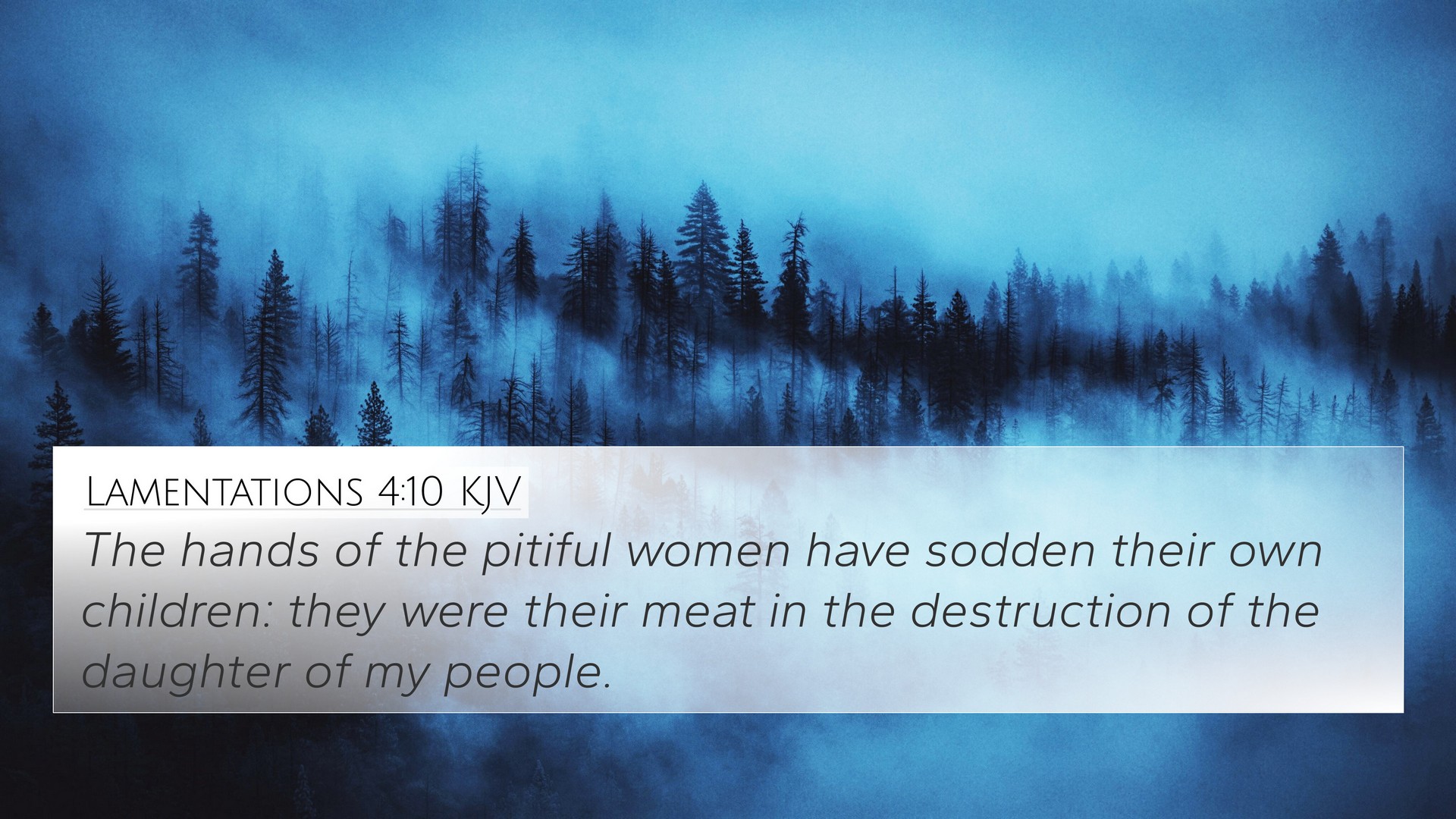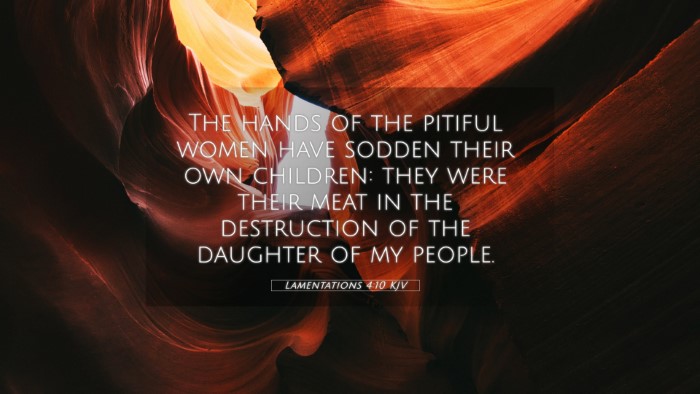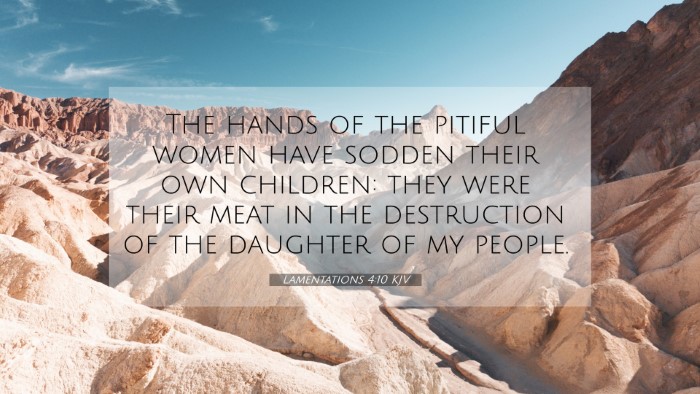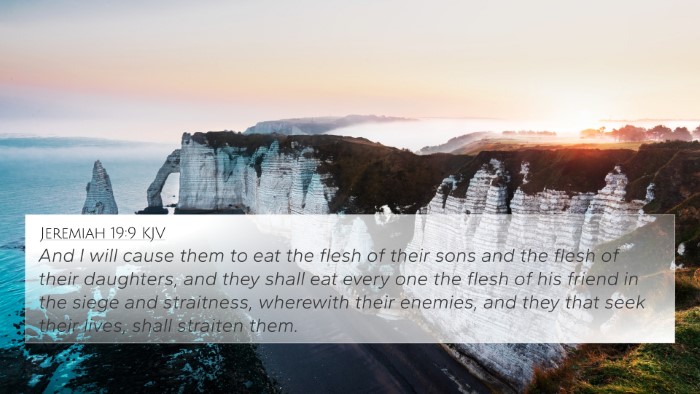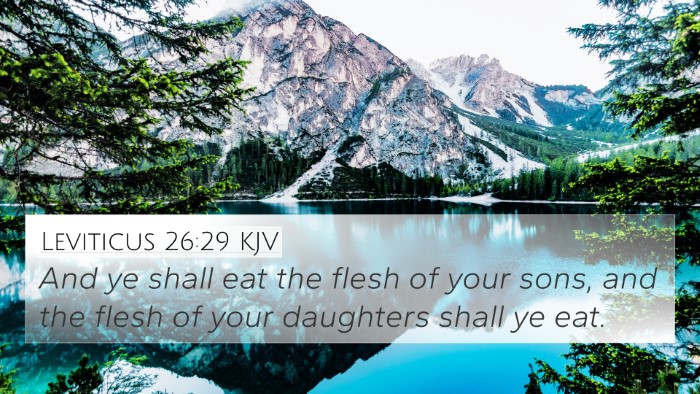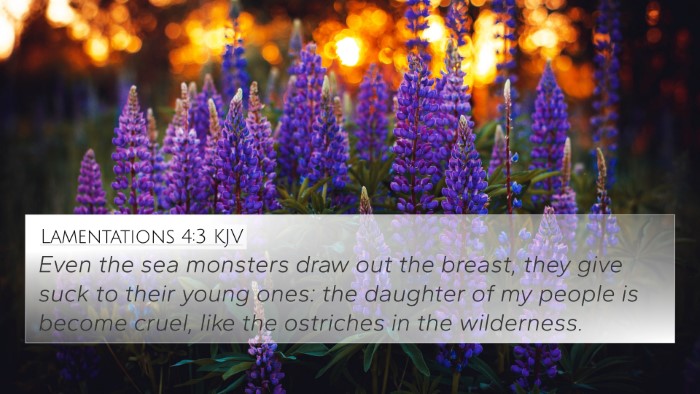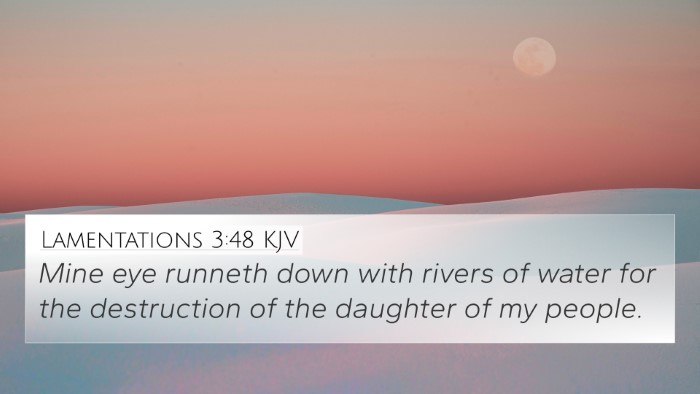Bible Verse Meaning: Lamentations 4:10
Lamentations 4:10 reads:
"The hands of the compassionate women have boiled their own children; they were their food in the destruction of the daughter of my people."
Summary of the Verse
This verse highlights the extreme desperation and suffering experienced by the people of Jerusalem during the siege. The imagery of compassionate women resorting to cannibalism signifies the depths of anguish and tragedy during this time. Commentary interpretations emphasize both the physical and emotional toll of the situation, shedding light on the moral decay resulting from sustained suffering.
Insights from Commentaries
- Matthew Henry's Commentary: Henry interprets this verse as demonstrating the profound grief and hopelessness experienced by the women, who traditionally served as nurturers. He indicates that the horrific act showcases the consuming nature of despair which leads even the most compassionate individuals to commit unspeakable acts.
- Albert Barnes' Notes: Barnes highlights that this statement serves as a vivid picture of the utter devastation and the state of affairs among the people of Jerusalem. It points to the breakdown of social norms and the extreme consequences of sin as the city faces divine judgment.
- Adam Clarke's Commentary: Clarke emphasizes the metaphorical aspect of the "compassionate women." He discusses how the calamity led to actions that deeply conflicted with the innate maternal instincts, illustrating a tragic reversal of roles where nurturing becomes associated with destruction.
Contextual Analysis
To understand Lamentations 4:10 in depth, one needs to consider the context of the entire chapter, which deals with the fall of Jerusalem and the resulting desolation.
Thematic Connections
This verse echoes various themes found in the Bible concerning suffering, judgment, and compassion turned inside out. Below are key thematic connections:
- Desperation in Times of Crisis: Similar to Matthew 24:19, which talks about woe to those who are pregnant in times of tribulation.
- The Pain of Loss: Reflects the themes found in Psalm 137:1-4, lamenting over captivity and sorrow.
- Moral Decay in Suffering: Similar to Ezekiel 5:10, where parents eat their children due to the dire situation.
- The Impact of Sin: Closely tied to Romans 1:28, highlighting how God can give people over to depravity when they reject Him.
Cross-References
Here are some cross-references that provide deeper insights into Lamentations 4:10:
- Deuteronomy 28:53-57: Discusses the curses for disobedience, where mothers will eat their children.
- 2 Kings 6:28-29: A narrative of extreme famine causing similar desperation.
- Jeremiah 19:9: Speaks of cannibalism occurring during siege as a sign of God's judgment.
- Isaiah 49:15: Questions whether a mother could forget her child, raising the stakes of maternal love.
- Matthew 24:19: A warning of calamity and its impacts on life.
- Lamentations 2:20: Another part of the lament where similar despair is expressed.
- James 1:14-15: Discusses how sin brings forth death, which can be applicable in context.
Exploring the Moral Implications
This verse serves as a grave reminder of how dire situations can lead to moral complexities that society never thought possible. It drives home the point that divine judgment can manifest in extreme ways, impacting families and communities profoundly.
Practical Applications
Understanding the gravity of Lamentations 4:10 encourages individuals to empathize with the suffering, foster compassion, and seek justice. It implores a reflective consideration on how modern society addresses issues of poverty, violence, and neglect, highlighting the need for humanitarian efforts.
Conclusion
In summary, Lamentations 4:10 encapsulates the horror and pain from the destruction of Jerusalem and the drastic measures people take when pushed into despair. By drawing connections between this verse and others, we can see a broader Biblical theme of judgment, sorrow, and the need for compassion - all of which resonate throughout scripture.
